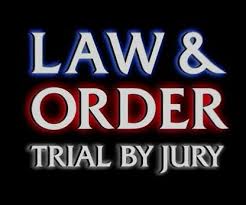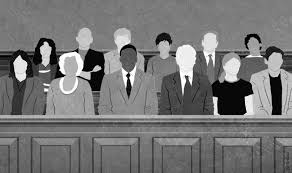In Suits at common law, where the value in controversy shall exceed twenty dollars, the right of trial by jury shall be preserved, and no fact tried by a jury, shall be otherwise reexamined in any Court of the United States, than according to the rules of the common law.
The Seventh Amendment to the Constitution revolves around juries and whether or not a case deserves or warrants the need to have a jury present. Everyone has the basic right to a trial by jury, however, this may not hold true in civil court or common law court where there are a few exceptions to the rule. Statistically, juries actually decided less than one percent of civil cases that are brought to trial, however, there are few exceptions where a jury is necessary and thus these are protected by the Seventh Amendment. This amendment requires that only juries be used in civil federal court and not in cases that are at the state level. Surprisingly, the United States is one of the only nations that still requires trials by civil juries, whereas many nations in Europe, Asia, and so on do not require juries. But does the lack of a jury help or hinder one’s case? Does that make the court proceedings more impartial or more biased? The requirement by law that most legal cases have a jury stems from colonial times and how many trials held by English officials failed to provide support or a jury for the defendant and thus they had no chance of winning their case.
A landmark Supreme Court case that dealt with the Seventh Amendment was Feltner v. Columbia Pictures Television Inc. This case, which took place in 1998, referenced an instance from 1991 where Columbia had ended the agreements licensing several TV series, all which were owned by C. Elvin Feltner, after his payments for ownership of these programs failed. Columbia sued Feltner for copyright infringement because he continued to show these series after he stopped paying Columbia for ownership. Feltner requested a trial by jury hoping he would win some sympathy, but the District Court denied his request and awarded Columbia statutory damages following a simple bench trial (trial ruled on only by a judge). The Court of Appeals upheld the decision stating that the Seventh Amendment allows trials to proceed without a jury if they fall under the common law category of case classification.
Surprisingly in a unanimous decision, the Supreme Court ruled in favor of Feltner and said that regardless of a clause in the Copyright Act, the Seventh Amendment provides the right to trial by jury if it is requested and that the jury may decide that amount of statutory damages that must be paid. Here the court upheld the right of every citizen to have a trial by jury when requested.
So, the Seventh Amendment presents somewhat of a conundrum for it guarantees the right to a trial by jury, but also provides instances where juries are deemed unnecessary. But should there be any court case where a jury should not be used, or should they be used in every case regardless of content or severity. Does it say something about our own justice system because we still value and use juries often, while other nations do not? Jury’s still out on that one.
https://www.oyez.org/cases/1997/96-1768
https://constitutioncenter.org/interactive-constitution/amendments/amendment-vii




